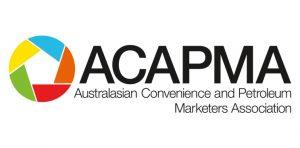By Australasian Convenience and Petroleum Marketers Association CEO Mark McKenzie.

The end of the Brisbane petrol price cycle last week saw average petrol prices rise from a low of 137.4cpl on 27 June 2021 to a high of 172.6cpl on Monday, 5 July 2021. The 35.2cpl swing over the week brought out the usual Queensland price critics crying foul, led by the State’s Motoring Body (the RACQ) and Mr Geoff Trotter of FuelTrac.
In an interview published on the ABC News website yesterday (see RACQ warns record-high fuel prices across South East Queensland could continue (msn.com), an RACQ spokeswoman alleged that the retail margins being charged by Queensland fuel retailers were unreasonable.
“During the pandemic, servos had high indicative retail margins because so many people weren’t driving, so fuel sales volumes were low — but now [that] sales are back to normal, the fact they’re still charging these exorbitant prices is frankly unfair,” said RACQ spokeswoman Renee Smith.
Exorbitant and unfair prices! Really?
Such commentary might be valid if the sorts of margins charged by retailers over the past seven days were indicative of year-round averages. But, as the RACQ so often ignores, retail prices fluctuate widely at the extremities of the traditional petrol price cycle. This means that the margins charged at these points in the cycle cannot reasonably be considered as indicative of actual profits – they merely demonstrate the vagaries of petrol price discounting.
The low point of the most recent petrol price cycle in Brisbane occurred on 27 June 2021. At this point, the average petrol price in Brisbane was 137.4cpl. Given that the Terminal Gate Price (i.e. the wholesale price paid by fuel retailers) at this time was 133.1cpl, Brisbane fuel retailers were actually losing an average of 6.7cpl once you take account of the fact that average retail costs are around 11cpl.
Fast forward a week to 5 July 2021 and petrol prices had reached the high point of the next cycle, with Brisbane fuel retailers charging an average of 172.6Cpl. Given the corresponding wholesale price at this time was 134.7Cpl, the gross profit margin (i.e. before tax) was 25.9Cpl after discounting the same average retail cost of 11Cpl.
So, let us just play all that back. The average fuel retailer margin in Brisbane was -6.7Cpl on 27 June 2021, was 25.9Cpl one week later, and averaged 9.6Cpl per week over the last two weeks.
If you look at the full duration of the latest Brisbane petrol price cycle (between 28 May 2021 and 27 June 2021), the average gross profit margin earned by fuel retailers in Brisbane was around 5.6Cpl. This represents a gross retailer margin of $2.80 in an average $73.90 fuel purchase over the four-week period – that is, just 3.8% of the price paid by motorists at the pump.
A 3.8% gross profit margin is hardly unreasonable or exorbitant. It is actually lower than the all-Australian industry average gross profit margin of 5.5% – and well below the average profit reported by RACQ on its combined car insurance and motoring services levied on members.
In its latest ‘Quarterly Report on Australian Petrol Prices,’ the ACCC noted that the Gross Indicative Retail Difference in national average petrol prices fell for the second consecutive quarter during the March 2021 Quarter.
The ACCC report (Quarterly report on the Australian petroleum market – March quarter 2021 | ACCC) noted that: “average gross indicative retail differences in the five largest cities fell slightly for the second consecutive quarter, however they still remain relatively high. In the March quarter, they were 15.8 Cpl, a decrease of 1.6 Cpl from the previous quarter”.
In some commentary that might well have been directed at the recent RACQ commentary, the ACCC went on to note that: “Gross indicative retail differences are the difference between retail prices and terminal gate (or wholesale) prices and are a broad indicator of gross retail margins. As they include retail operating costs, they should not be interpreted as actual retail profits.”
If the average retail cost of around 11cpl is deducted from the ACCC’s gross indicative retail difference, then the average gross profit earned by fuel retailers in Australia’s five largest capital cities (including Brisbane) during the 12 weeks of March 2021 Quarter was 4.8cpl.
Once again, such a margin makes the RACQ commentary about ‘exorbitant’ and ‘unfair’ profit margins look wholly uninformed.
But the RACQ wasn’t the only one to make some outrageous commentary about Brisbane’s average petrol prices this week.
One of the leading aspirants for the role of Queensland’s first Fuel Price Commissioner, Geoff Trotter of FuelTrac, was at it again with his bizarre suggestion that the Queensland Government should introduce a maximum fuel price cap (previously suggested at 20Cpl above the wholesale price). This action, Mr Trotter suggests, would prevent the sort of volatility we are currently seeing in the retail fuel market. And he is probably right.
But, Blind Freddy can see that if the Queensland Government – or indeed any Australian Government – was to introduce a fuel price cap then the likely market response is that all fuel retailers would consistently price their fuel at or near the cap.
Mr Trotter’s previous suggestions of a 20Cpl cap above the wholesale price paid by fuel retailers would mean that, for the past 4 weeks of the last petrol price cycle and indeed the 12 weeks of the March 2021 Quarter, Brisbane motorists would have paid more for their fuel than actually occurred – and average fuel retailer margins would have nearly doubled.
Maybe the so-called fuel price experts in Queensland should leave future fuel price commentary to others. While the price volatility at the extremities of the petrol price discount cycle is understandingly frustrating for consumers, the fuel price cycle imposes a competitive tension on fuel prices that delivers lower price outcomes for motorists over time.
Published with permission from ACAPMA.
Source: https://acapmag.com.au/2021/07/racq-fuel-price-commentary-unjustified-again/




